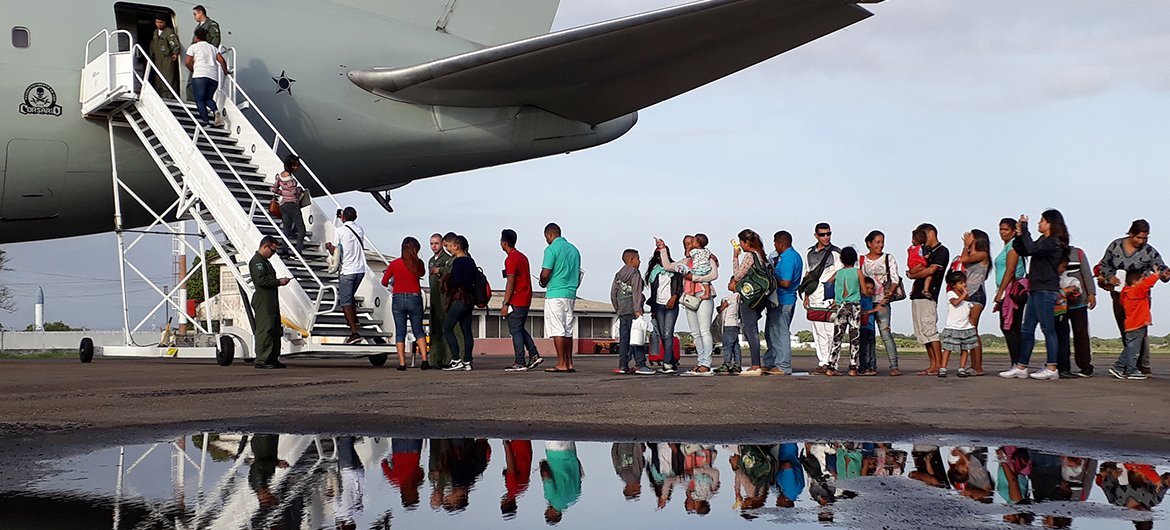What is International Migrants Day and why is it important
Around 281 million people live in other countries than those in which they were born, according to UN data; Brazil has 4.5 million citizens living abroad


By Rodrigo Borges
It is quite likely that you, the reader, have in your family some ancestor or even a living relative who is a migrant, born in a different country from where they live today. But this movement, which sometimes seems to have remained in history, continues to be relevant and generates several transformations around the world. It is precisely this group that is remembered globally every December 18th, when International Migrants Day is celebrated.
The date was established by the General Assembly of the United Nations on December 4, 2000, and aims to celebrate the recognition of the cultural, economic, and social contributions made by this community around the world, both in destination and origin societies. Additionally, it also seeks to promote awareness actions against prejudices such as racism and xenophobia.
According to UN data, currently, about 281 million people live in countries different from where they were born, known as international migrants or simply immigrants. This amounts to 3.6% of the global population.
Migrants in Brazil and Brazilians abroad
In Brazil, international migrants (or immigrants) correspond to less than 1% of the population, reaching around 2 million people, according to recent estimates by OBMigra (Observatório das Migrações Internacionais), a research center linked to the University of Brasília (UnB) and which acts as a partner of the federal government in providing data and studies on the migration process.
Although small compared to the total Brazilian population, the migrant community is spread throughout the country, with some areas with a higher concentration, such as São Paulo, Rio de Janeiro, and Boa Vista. A 2018 study by IBGE (Brazilian Institute of Geography and Statistics) revealed that international migrants are present in 3,876 of the 5,570 municipalities in the country, which is 69% of the total. On the other hand, only 5.5% of these localities have services aimed at this population.
Furthermore, projections from the Ministry of Foreign Affairs indicate that at least 4.5 million Brazilians live as international migrants (or emigrants) in other countries. It is worth noting that this estimate does not take into account Brazilians living in an undocumented manner.
What it means to be a migrant, from the perspective of migrant people
Lupa do Bem listened to migrant people living in Brazil and abroad about what International Migrants Day means to them. The answers raised questions such as overcoming, learning and constant adaptation to everyday situations. All this with the challenge of not forgetting your roots.


“Being a migrant means being brave, it means going to bed without conformity and waking up with hope, it means summing up your life in a suitcase, saying goodbye to some and taking others, often without a compass or north, just with the certainty that it will be better there”, says Yesica Morais, a Venezuelan communicator who lives in Boa Vista and dedicates a large part of her activity to bringing information to her compatriots who live in Brazil.
For her, the date especially aimed at migrants has yet another meaning. “For some, we are numbers, for others we are intruders. But on this day we have the chance for all of us to raise our voices to remember that we are human, that we are equal”.
Brazilians living abroad are also migrants. This is the case of Ingrid Gomes Sousa, graduated in Tourism and who has lived in the Netherlands for 16 years, the last 12 in the city of The Hague. “For me, being a migrant means having to move forward in the face of challenges that often go beyond adapting to the new place we live. It’s about learning a new language, adapting to new habits and customs from a culture different from ours, without forgetting who we are.”
In line with what the UN and many human rights organizations advocate, Ingrid also believes that a date like International Migrants Day is important to open a global dialogue on migration. “Although it has been part of our society for centuries, migration still does not receive the attention it should. This date is also a way of bringing empathy to the fight against prejudice and xenophobia, raising awareness about our rights and duties, as well as joining the fight for more effective and dignified migration policies for everyone”.


